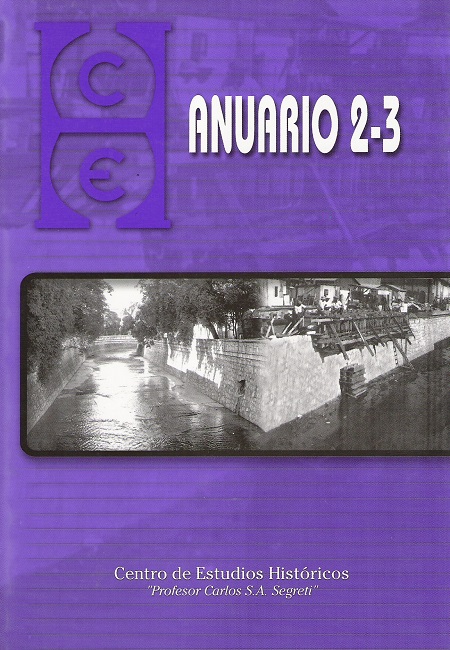in general, and in Rosario in particular the option market. This will be done through the analysis of the formation of the stock company Mercado General de Productos Nacionales during the first decade of the 20th century. To some extent, we will be making
DOI:
https://doi.org/10.52885/2683-9164.v.n2-3.23299Abstract
From 1946 on, when Perón reached the power, a new institutional framework was created. Such framework redefined the role of the State in the economy, increasing the power of intervention that it had acquired during the period between the wars and the crisis of the 30's. The economic measures implemented, their nature and the decision taking process in which they originated, gave rise to a long distributive conflict and to the lost of the legitimacy of the political system. There were some measures that were favorable to some people and at the same time prejudicial to some others such as: the politic of full employment and keeping the real salaries; the explicit protectionism in the need of acquiring import permits that were granted at the government discretion; the implicit subsidy to certain industries through the granting of credit at nominal interest rates lower than the inflation; the modification of the Carta Orgánica of the Central Bank, the consequent possible creation of money so as to cover the financial deficit and the inflationary financing; the nationalization of the deposits; the use of funds from the social security system. The beneficiaries formed an implicit coalition that opposed to every change that would modify the status quo; some of the harm ones constituted pressure groups to participate in the distribution, but some others found it difficult to organize themselves and to propose a feasible alternative. That explains why it was so difficult to change this institutional framework once it was established.
Downloads
References
CANITROT Adolfo, “La experiencia populista de redistribución de ingresos”, en Desarrollo Económico, vol. 15, núm. 59, 1975.
DÍAZ ALEHJANDRO Carlos, “Tipo de cambio y términos del intercambio en la República Argentina, 1913-1976”, en Documentos de Trabajo, núm. 22, CEMA, marzo, 1981.
GERCHUNOFF Pablo, “Peronist Economic Policies, 1946-1955”, en Di Telle Guido y Rudiger Dornbusch, The political Economy of Argentina, 1946-1983, Oxford, St. Anthony s-Macmillan, 1989.
PREBISCH Raúl, “La experiencia del Banco Central argentino en sus primeros ocho años”, en Banco Central de la República: 1935-1985”, Cincuentenario del Banco Central de la República Argentina, 1986.
SCHWARTZ Hugh H, Tge Argentine experience with industrial credit and protection incentives. Ph. D Disertation, Yale University, 1967.
Downloads
Issue
Section
License
Aquellos autores/as que tengan publicaciones con esta revista, aceptan los términos siguientes:
- Los autores/as conservarán sus derechos de autor y garantizarán a la revista el derecho de primera publicación de su obra, el cuál estará simultáneamente sujeto a una Licencia de reconocimiento de Creative Commons. Se puede compartir, copiar, distribuir, ejecutar y comunicar públicamente la obra, siempre que: a) se cite la autoría y la fuente original de su publicación (revista, editorial y URL de la obra); b) no se use para fines comerciales; c) no se altere, transforme o genere una obra derivada a partir de esta obra.
- Los autores/as podrán adoptar otros acuerdos de licencia no exclusiva de distribución de la versión de la obra publicada (p. ej.: depositarla en un archivo telemático institucional o publicarla en un volumen monográfico) siempre que se indique la publicación inicial en esta revista.
- Se permite y recomienda a los autores/as difundir su obra a través de Internet (p. ej.: en archivos telemáticos institucionales o en su página web) después del proceso de publicación, lo cual puede producir intercambios interesantes y aumentar las citas de la obra publicada. (Véase El efecto del acceso abierto).









